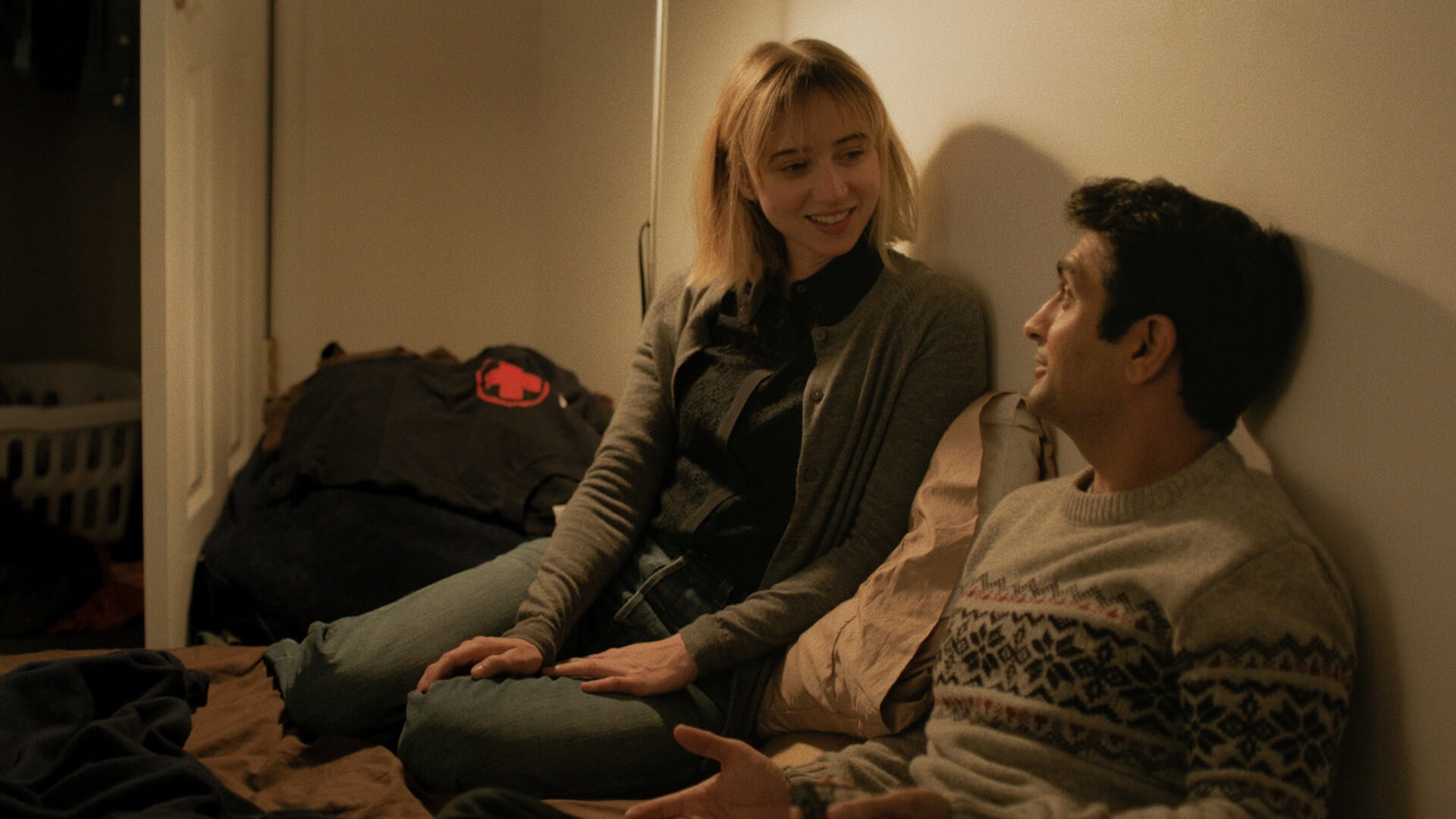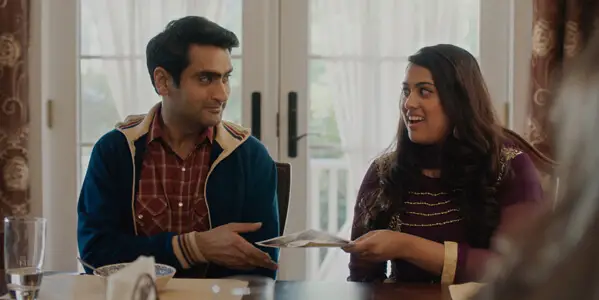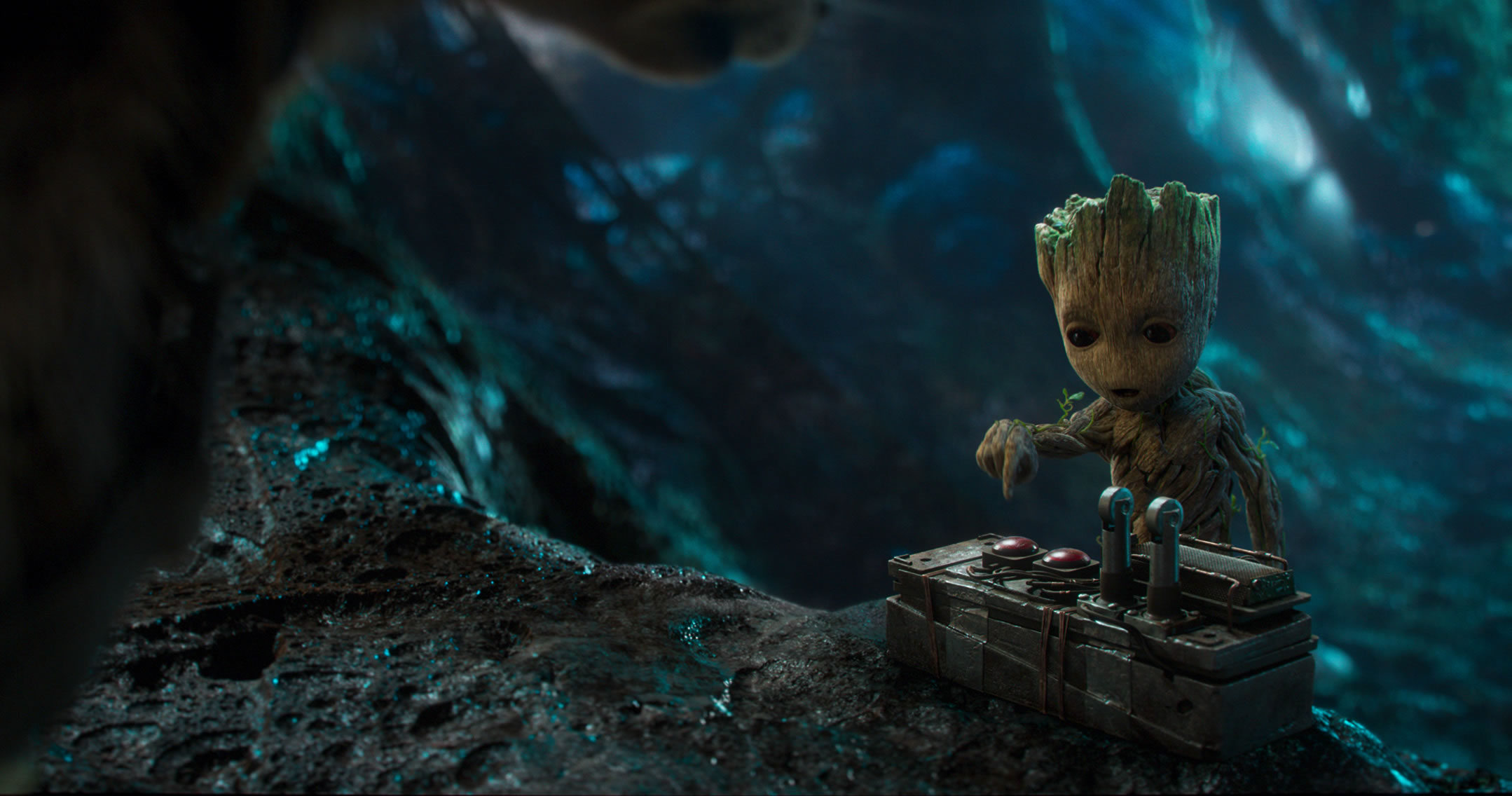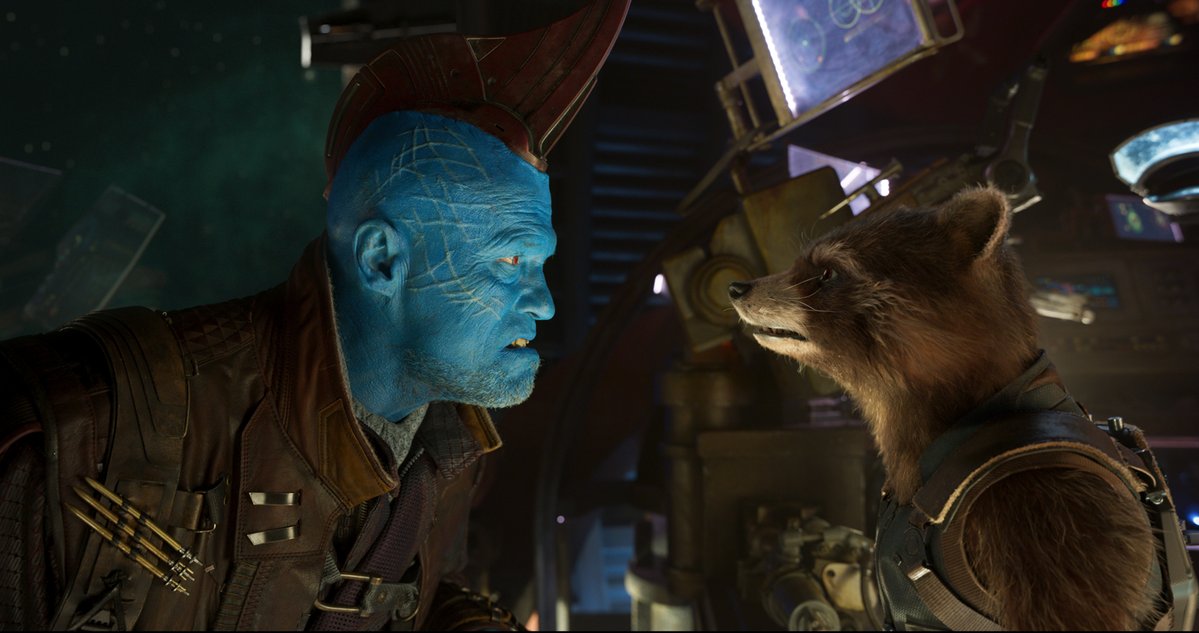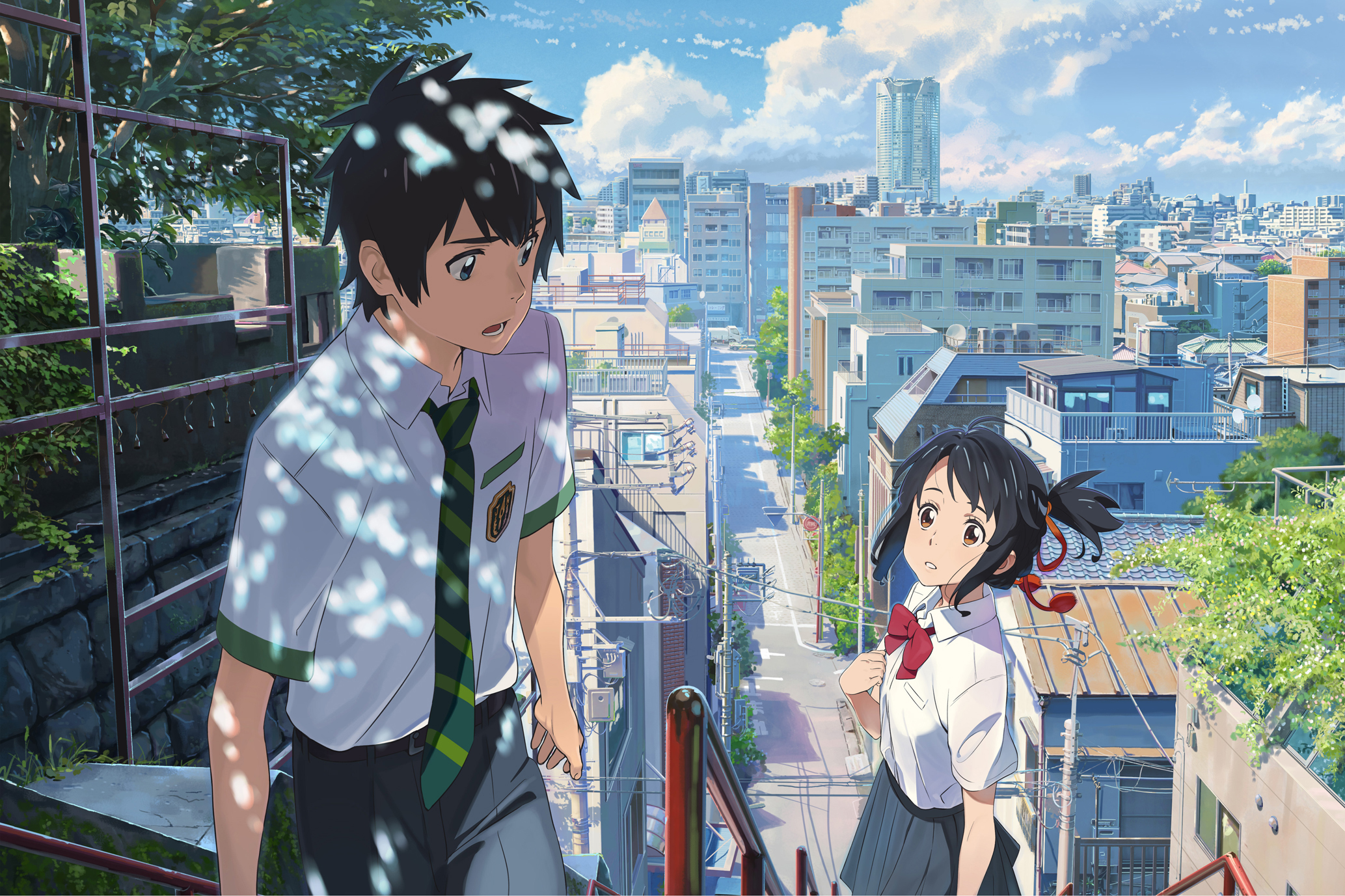And now another note:
August, in most movie calendars, is a pretty quiet month, usually starting out with a bang and fizzling out quickly, but 2017 is shaping up to be a banner year, and the momentum of Blockbuster season simply refuses to abate as film after film assails us. Accordingly, we here at the General's Post have found ourselves in the unenviable position of needing to sprint just to keep up. And as such, we present:
Three Summer Films Worth Seeing
The Big Sick
Alternate Title: Everybody Loves Kumail
One sentence synopsis: A Pakistani-American stand-up comedian tries to deal with his white girlfriend's serious illness, while juggling the pressures of his family's traditionalist views.
The Verdict: I don't watch a lot of television. Movies are more my thing. In consequence, I had no idea who Kumail Nanjiani was nor why I should give a damn about him and his life. The Silicon Valley/Portlandia/Franklin & Bash alum was, to me, simply the latest in a long line of comedians who have decided to grace my theater screens with their autobiographical stories. And while I may know very little of Nanjiani's work, I do know a fair amount about what projects like this one typically result in, having subjected myself to both Sleepwalk With Me and Don't Think Twice. Those two movies were, to put things simply, bad, and I had every expectation that this one would be yet another entry in the "I'm a comedian, look how interesting my life is!" hall of shame. I had consequently resolved to avoid this movie at all costs, and had to be dragged into it by main force. The fact that the alternatives began with Despicable Me 3 didn't help my case to avoid it.
Fortunately, though, the resulting film turned out to be slightly different than the aforementioned disasters. How so? Well unlike those other movie, The Big Sick is funny.
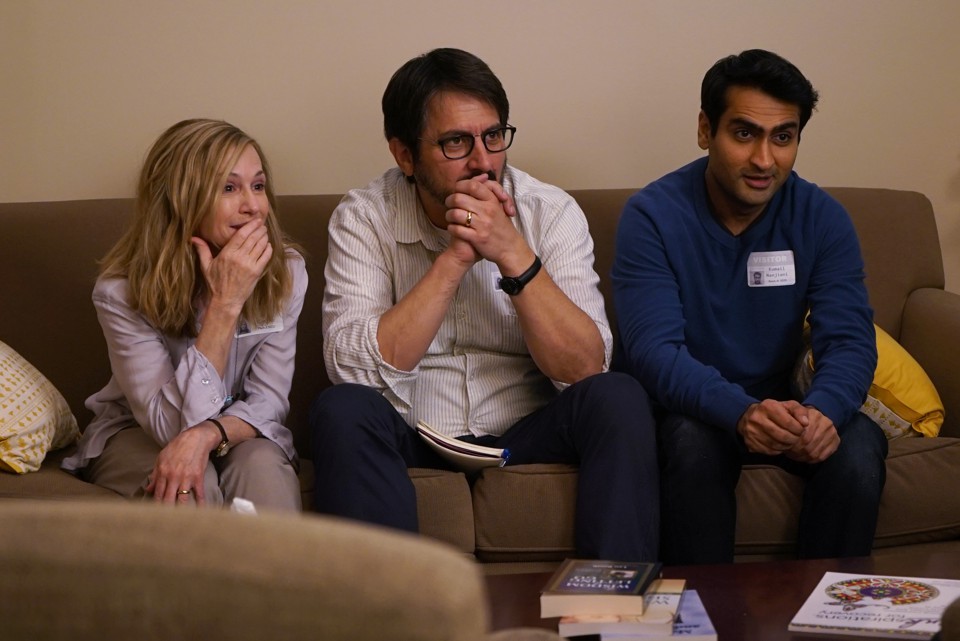 Actually it's really funny, riotous even, thanks to an extremely strong script and superb comic actors to perform it. Not only is Nanjiani miles
better at portraying his own autobiography (that's gotta be awkward,
doesn't it?) than either Mike Birbiglia or the collection of humorless
dunces that made up Don't Think Twice, but he has wisely buttressed his
own performance with veteran comic talent such as an unrecognizable Ray
Romano, and the increasingly ubiquitous (and irreplaceable) Holly
Hunter. I was never a big fan of Ray Romano's sitcom work back in the
day (I did mention that TV isn't my thing), but I have always liked his
ultra-dry standup work, and that's the dynamic he brings to this one.
The humor is black, he's playing the father of a young woman dealing
with a mysterious, possibly fatal illness, after all, but there's such
an effortless verisimilitude to his ramblings about how Kumail's life is
a mess, and so is his own, that it's impossible not to laugh along.
Holly Hunter meanwhile, who was the only good thing in Batman v.
Superman (and that's not a small matter) plays Romano's wife, Kumail's
eventual mother in law, as an irascible North Carolinian filled with
piss, vinegar, and drunken stories. I don't think I appreciated just
how wonderful Holly Hunter was until recently, but she's absolutely
wonderful in this film, particularly in a scene where a bro-douche
starts shouting racial epithets at Kumail moments before she jumps him
with a liquor bottle. Hunter and Romano have an effortless, beautiful
chemistry to them, and they alone make the movie worthwhile.
Actually it's really funny, riotous even, thanks to an extremely strong script and superb comic actors to perform it. Not only is Nanjiani miles
better at portraying his own autobiography (that's gotta be awkward,
doesn't it?) than either Mike Birbiglia or the collection of humorless
dunces that made up Don't Think Twice, but he has wisely buttressed his
own performance with veteran comic talent such as an unrecognizable Ray
Romano, and the increasingly ubiquitous (and irreplaceable) Holly
Hunter. I was never a big fan of Ray Romano's sitcom work back in the
day (I did mention that TV isn't my thing), but I have always liked his
ultra-dry standup work, and that's the dynamic he brings to this one.
The humor is black, he's playing the father of a young woman dealing
with a mysterious, possibly fatal illness, after all, but there's such
an effortless verisimilitude to his ramblings about how Kumail's life is
a mess, and so is his own, that it's impossible not to laugh along.
Holly Hunter meanwhile, who was the only good thing in Batman v.
Superman (and that's not a small matter) plays Romano's wife, Kumail's
eventual mother in law, as an irascible North Carolinian filled with
piss, vinegar, and drunken stories. I don't think I appreciated just
how wonderful Holly Hunter was until recently, but she's absolutely
wonderful in this film, particularly in a scene where a bro-douche
starts shouting racial epithets at Kumail moments before she jumps him
with a liquor bottle. Hunter and Romano have an effortless, beautiful
chemistry to them, and they alone make the movie worthwhile.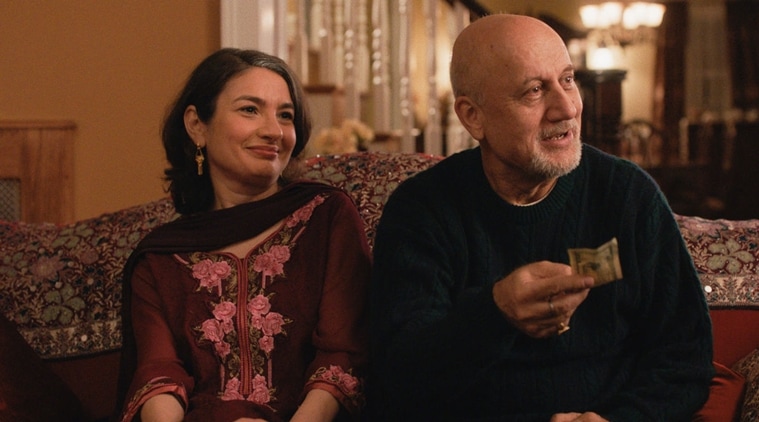 But
they're not alone. Like I said, I don't know Kumail Nanjiani from
anyone else, but while his standup routine in this film isn't anything
to write home about, his interactions with the other comedians in his
little group, which (in keeping with all inter-comedian dialogue in
every film I've ever seen), is brutal and savage and entirely without
restraint. We also get to meet Kumail's family, including Silver
Linings Playbook's Anupam Kher as his father, and Zenobia Shroff as his
forever-meddling mother, whose brittle attempts at pretending that the
succession of Pakistani women she brings over to meet him have "just
dropped by" are so stale that even the rest of his conservative family
roundly mocks them. The tensions between Kumail's family and his desire
to live a modern, secular life with his white girlfriend is a major
element of the plot, and fortunately, it is handled deftly and with
tremendous skill, neither showcasing Kumail as some perfect, passionate
crusader against the demands of his rigid family (we've only seen that
story done a hundred and thirty times), nor muddled with personal
anecdotes of no interest to anyone except the author himself (as
happened to Sleepwalk With Me).
But
they're not alone. Like I said, I don't know Kumail Nanjiani from
anyone else, but while his standup routine in this film isn't anything
to write home about, his interactions with the other comedians in his
little group, which (in keeping with all inter-comedian dialogue in
every film I've ever seen), is brutal and savage and entirely without
restraint. We also get to meet Kumail's family, including Silver
Linings Playbook's Anupam Kher as his father, and Zenobia Shroff as his
forever-meddling mother, whose brittle attempts at pretending that the
succession of Pakistani women she brings over to meet him have "just
dropped by" are so stale that even the rest of his conservative family
roundly mocks them. The tensions between Kumail's family and his desire
to live a modern, secular life with his white girlfriend is a major
element of the plot, and fortunately, it is handled deftly and with
tremendous skill, neither showcasing Kumail as some perfect, passionate
crusader against the demands of his rigid family (we've only seen that
story done a hundred and thirty times), nor muddled with personal
anecdotes of no interest to anyone except the author himself (as
happened to Sleepwalk With Me).And that's... pretty much all there is to it. The Big Sick is a romantic comedy crossed with a family drama (actually multiple family dramas all rolled together), but it all just works, in fact it works astoundingly well, given how badly most of these sorts of films tend to fail. The whole exercise has a warmth to it, a wondrous chemistry that one sees only on the rare occasions when a cast and a script come together in just the right way. All of the minor characters, from Kumail's fellow comedians (mostly SNL alums like Aidy Bryant and Bo Burnham), to his more conservative brother Naveed (Adeel Akhtar), to the patient herself, played by Zoe Kazan, who has the unenviable role of portraying the writer of the movie. Everyone just works so well together in this one that the whole movie gels around them. As a result, despite every expectation I had, The Big Sick turned out to be one of the best films I've seen in this remarkable year.
Final Score: 8/10
o-o-o-o-o
Spider-man: Homecoming
Alternate Title: Spider-man, or, The Unexpected Virtue of Meta-casting
One sentence synopsis: Peter Parker struggles to balance life as a high schooler with his desire to become an Avenger, while confronting an underground arms trafficking ring and trying to prove himself to Tony Stark.
The Verdict: I'm a Marvel kid. As such, the offerings of the MCU have been a neverending fount of riches to me. But that said, Spider-man was not really my thing. I don't have anything against the character, mind you, just no particular enthusiasm for him (my preference was for Iron Man and Cap). Ever since Spider-man first made it to screen back in 2002, he's shown up six times, in the original three films, which were very good (up until number 3, at least), in the two Sony reboots, which were godawful, and in Civil War, which... was. The news that, following the cataclysm that was Amazing Spider-man 2, that Spidey would be returning to the MCU where he belonged, was certainly overdue, and a source of some approval from me (more MCU is an absolute good at this point), but I wasn't blown away by the prospect of starting all over again with Spider-man, having done so twice already in this young century.
I should have been.
 Spider-man:
Homecoming is a superb movie, one of the better offerings of the
post-Avengers' MCU, a small-scale film with big-scale skill behind it,
one that manages to fit Spider-man, or more precisely this
Spider-man into the wider universe as though he had always been there,
finding a niche for him that isn't taken up by the other films in the
MCU canon. It boasts yet another stellar super-cast, which begins with
Billy Elliot's Tom Holland as a Peter Parker who finally both looks and
acts like a High Schooler. While there are varying opinions on how good
Toby McGuire was in the role, and Andrew Garfield would eventually go
on to become a fine actor in his own right, I think it's unquestionable
that Hooper is the best Peter Parker we've so far seen, naive and
foolish and trying to be more responsible than his age normally allows
for. Hooper plays a nerd (and an American one at that) perfectly, and
is supplemented by a whole host of other high-school(ish) aged actors
for his peers, from newcomer Jacob Batalon as Peter's best friend Ned,
Disney channel star Zendaya Coleman as "MJ", re-envisioned in this film
as a slightly weird, intellectual loner, and Grand Budapest Hotel's Tony
Revolori as "Flash", the class dickhead, who is fortunately much better
in this film than he was in that one. All of these kids act like kids,
awkward as hell, smart-asses to a fault, completely without an idea
what they are doing most of the time, and obsessed with looking cool,
however they imagine that to be. The kids, Parker in particular, are at
the center of the story, which is one of the main reasons this film
works at all.
Spider-man:
Homecoming is a superb movie, one of the better offerings of the
post-Avengers' MCU, a small-scale film with big-scale skill behind it,
one that manages to fit Spider-man, or more precisely this
Spider-man into the wider universe as though he had always been there,
finding a niche for him that isn't taken up by the other films in the
MCU canon. It boasts yet another stellar super-cast, which begins with
Billy Elliot's Tom Holland as a Peter Parker who finally both looks and
acts like a High Schooler. While there are varying opinions on how good
Toby McGuire was in the role, and Andrew Garfield would eventually go
on to become a fine actor in his own right, I think it's unquestionable
that Hooper is the best Peter Parker we've so far seen, naive and
foolish and trying to be more responsible than his age normally allows
for. Hooper plays a nerd (and an American one at that) perfectly, and
is supplemented by a whole host of other high-school(ish) aged actors
for his peers, from newcomer Jacob Batalon as Peter's best friend Ned,
Disney channel star Zendaya Coleman as "MJ", re-envisioned in this film
as a slightly weird, intellectual loner, and Grand Budapest Hotel's Tony
Revolori as "Flash", the class dickhead, who is fortunately much better
in this film than he was in that one. All of these kids act like kids,
awkward as hell, smart-asses to a fault, completely without an idea
what they are doing most of the time, and obsessed with looking cool,
however they imagine that to be. The kids, Parker in particular, are at
the center of the story, which is one of the main reasons this film
works at all.But of course there are other elements to the film as well, including Robert Downey Jr., reprising his role once again as Tony Stark, who this time is tasked with taking on a sort of mentorship role to a young would-be superhero. Tony Stark is, of course, roughly the last person in the MCU one would normally trust with molding young minds (next to Ultron, I suppose), but the movie plainly knows this, and more importantly, doesn't over-use Stark, having him step in where necessary for a series of stupifyingly-good scenes, among the best in the film overall. Part of this is the fact that, ten years on, Downey as Stark is still the greatest casting job in history, but it's also just a measure of how far the character has come that he can fit into a situation like this at all, lecturing Peter on irresponsibility before hesitating and remarking to himself that he sounds like his father.
 Homecoming isn't perfect, of course.
The plot, despite the excellent use of detail and setting, is fairly
bog-standard, and the movie seems to be aiming for either an underclass
anti-hero or Donald-Trump-as-a-supervillain theme with Vulture, neither
of which ultimately come to fruition. The stakes and scale are kept
deliberately low as well, so if you're obsessive about big sweeping
changes being made to the universe as a whole, it will be possible to
dismiss the film as nothing but filler (as some already have. But the
film is ultimately just extremely well-made , with Onion News Network's
Creative Director Jon Watts at the helm. By this point, Marvel hitting
these things out of the park is so routine it barely merits comment (he
said while commenting upon it...), but given what the rest of the world
manages to foul up when it comes to superheroes, the fact that they're
not only still going but still going at this level is worth stopping to
recognize, even if we've done it so many times before.
Homecoming isn't perfect, of course.
The plot, despite the excellent use of detail and setting, is fairly
bog-standard, and the movie seems to be aiming for either an underclass
anti-hero or Donald-Trump-as-a-supervillain theme with Vulture, neither
of which ultimately come to fruition. The stakes and scale are kept
deliberately low as well, so if you're obsessive about big sweeping
changes being made to the universe as a whole, it will be possible to
dismiss the film as nothing but filler (as some already have. But the
film is ultimately just extremely well-made , with Onion News Network's
Creative Director Jon Watts at the helm. By this point, Marvel hitting
these things out of the park is so routine it barely merits comment (he
said while commenting upon it...), but given what the rest of the world
manages to foul up when it comes to superheroes, the fact that they're
not only still going but still going at this level is worth stopping to
recognize, even if we've done it so many times before. And if the trailers for Thor 3 are anything to go by, we'll probably be doing so again before the year is out.
Final Score: 7.5/10
o-o-o-o-o
The Little Hours
Alternate Title: Chanson de Geste
One sentence synopsis: A servant fleeing from the vengeance of his master masquerades as a deaf-mute worker at a rural convent where the nuns are all crazy.
The Verdict: People occasionally accuse me of not seeing enough indie movies, accusing me of having too much love for the MCU, for instance, or for the mainstream wing of Hollywood overall. And it's true, I have always rejected the temptation to engage in hipsterisms, whereby movies are only good if they have budgets of nine dollars and nobody else has ever heard of them. It does not hurt that some of the worst films I've ever seen on this project, films like Under the Skin or White God or Ballet 422, are all obscure indie films watched by a handful of critics, and one savage, raving lunatic (hi). But while I've never made a secret of my appreciation for popular filmmaking (at least when it's not undertaken by Michael Bay, I have standards), a quick glance through my back-catalogue of reviews will reveal many dozens of obsure indie films that I saw on a lark, some of which I hated and some of which I did not. And if anyone needs more proof, consider the film before us here, a narrow-released indie comedy based on the works of a 12th century poet.
Indie enough for you, motherfuckers?
 The
Little Hours comes to us courtesy of boyfriend/girlfriend team Jeff
Baena and Aubrey Plaza, respectively director of and star of this film,
one of several they've done together. Baena I know nothing about, as
his previous work failed to cross my radar, but Plaza I do know, and
don't like. It's not that she's a bad actress, far from it, it's that
her preferred character is one designed, as if in a laboratory, to piss
me the hell off, the entitled, hipster douche who gets to be a dickhead
to everyone because this is her movie (I call this particular malady
'House Syndrome'). But while I'm no fan of Plaza's, I'm a huge
fan of John C. Reilly, who has only risen in my estimation with
(almost) every film I've seen him in, and who steals the show in this
movie, playing a jovial, lecherous, drunken, charming, wonderful priest
named Father Tommaso, head of a convent of nuns who are themselves
abusive, violent, foul-mouthed lechers, and who fits right in perfectly.
These nuns are played variously by such actresses as Alison Brie, Kate
Micucci, and Plaza herself, who betrays a certain self-awareness of her
archetypical role by casting herself explicitly as a horrible, grating
person who is also a violent rapist and a human-sacrificing witch.
The
Little Hours comes to us courtesy of boyfriend/girlfriend team Jeff
Baena and Aubrey Plaza, respectively director of and star of this film,
one of several they've done together. Baena I know nothing about, as
his previous work failed to cross my radar, but Plaza I do know, and
don't like. It's not that she's a bad actress, far from it, it's that
her preferred character is one designed, as if in a laboratory, to piss
me the hell off, the entitled, hipster douche who gets to be a dickhead
to everyone because this is her movie (I call this particular malady
'House Syndrome'). But while I'm no fan of Plaza's, I'm a huge
fan of John C. Reilly, who has only risen in my estimation with
(almost) every film I've seen him in, and who steals the show in this
movie, playing a jovial, lecherous, drunken, charming, wonderful priest
named Father Tommaso, head of a convent of nuns who are themselves
abusive, violent, foul-mouthed lechers, and who fits right in perfectly.
These nuns are played variously by such actresses as Alison Brie, Kate
Micucci, and Plaza herself, who betrays a certain self-awareness of her
archetypical role by casting herself explicitly as a horrible, grating
person who is also a violent rapist and a human-sacrificing witch.Yes, this is still a comedy.
 In
fact, it's not just any comedy. The Little Hours is in fact a
re-telling of Giovanni Boccacio's Decameron, the classical collection of
novellas written in the mid-14th century about a group of young,
wealthy Italians who amuse themselves by making up and telling ribald
tales. The framing story is absent here, but the plot itself is
straight out of the Boccacio's tales, which are reasonably obscure now
but were the Lord of the Rings of the late Middle Ages, read endlessly,
compared to Dante's Divine Comedy, and used as the explicit model for
Chaucer's Canterbury Tales. Where Plaza and Baena got the notion to
turn a handful of these tales into a movie, I have no idea, but they
have studiously done so, placing the film in its historical setting of
Northern Italy, while updating the language to make everyone sound like
foul-mouthed Brooklyners, as a way of "de-mystifying" the language of
stories which were originally about everyday, average folk in all their
drunken, debauched lechery. The result is a classical, medieval farce,
featuring such people as Fred Armisen as a hysterical Bishop and Nick
Offerman as a noble lord obsessed with the goings-on of the Guelfs (I
can't decide if Offerman's inability to pronounce 'Guelf' is intentional
or not). Dave Franco (brother of James), finally finds a worthwhile
role after the tepid fart that was the Now You See Me series, playing a
young man fleeing from Offerman's guards after cuckolding him (someone
is always getting cuckolded in
classical farces), and who winds up staying at a nunnery from hell,
where he is abused and raped and nearly sacrificed by a coven of
witches, before everyone involved is revealed to be equally lecherous
and bawdy and merriment is permitted to break out at last. It's a
classical farce, this is what you get.
In
fact, it's not just any comedy. The Little Hours is in fact a
re-telling of Giovanni Boccacio's Decameron, the classical collection of
novellas written in the mid-14th century about a group of young,
wealthy Italians who amuse themselves by making up and telling ribald
tales. The framing story is absent here, but the plot itself is
straight out of the Boccacio's tales, which are reasonably obscure now
but were the Lord of the Rings of the late Middle Ages, read endlessly,
compared to Dante's Divine Comedy, and used as the explicit model for
Chaucer's Canterbury Tales. Where Plaza and Baena got the notion to
turn a handful of these tales into a movie, I have no idea, but they
have studiously done so, placing the film in its historical setting of
Northern Italy, while updating the language to make everyone sound like
foul-mouthed Brooklyners, as a way of "de-mystifying" the language of
stories which were originally about everyday, average folk in all their
drunken, debauched lechery. The result is a classical, medieval farce,
featuring such people as Fred Armisen as a hysterical Bishop and Nick
Offerman as a noble lord obsessed with the goings-on of the Guelfs (I
can't decide if Offerman's inability to pronounce 'Guelf' is intentional
or not). Dave Franco (brother of James), finally finds a worthwhile
role after the tepid fart that was the Now You See Me series, playing a
young man fleeing from Offerman's guards after cuckolding him (someone
is always getting cuckolded in
classical farces), and who winds up staying at a nunnery from hell,
where he is abused and raped and nearly sacrificed by a coven of
witches, before everyone involved is revealed to be equally lecherous
and bawdy and merriment is permitted to break out at last. It's a
classical farce, this is what you get. But classical or not, is
it any good? Well... actually yeah, surprisingly so. Some movies need a
while to percolate in one's mind before one can make definitive claims
on them, and The Little Hours was one that I was lukewarm on initially
but have thought more and more highly of as the days have passed. It's
certainly not going to be to everyone's taste, and the story structure
(such as it is) is a complete mess by modern standards, but I find I
admire the film for daring to be what it is, for adopting the
anachronistic elements of the old 14th century story, warts and all
(nuns raping men was the rage
back in the early modern period) without a care in the world as to what
people might think of it. I admire it for not attempting to force a
modern three-act structure into a tale that was designed as a throwaway
piece of light entertainment, and for wisely selecting Reilly as a soft,
emotional core of the film, rather than bloviating endlessly on the
iniquities of women's roles in the 14th century or some other academic
polemic. Its ribaldry is properly ribald,
not merely an occasional recitation of a four-letter word, and it
neither luxuriates in how backwards the Middle Ages were, nor
"modernizes" them the way a lot of over-artistic crap does. And to top
all, it's actually funny. Not screamingly-so, but funny enough to be
worth a see, if you are inclined to check out the weirder side of the
indie world.
But classical or not, is
it any good? Well... actually yeah, surprisingly so. Some movies need a
while to percolate in one's mind before one can make definitive claims
on them, and The Little Hours was one that I was lukewarm on initially
but have thought more and more highly of as the days have passed. It's
certainly not going to be to everyone's taste, and the story structure
(such as it is) is a complete mess by modern standards, but I find I
admire the film for daring to be what it is, for adopting the
anachronistic elements of the old 14th century story, warts and all
(nuns raping men was the rage
back in the early modern period) without a care in the world as to what
people might think of it. I admire it for not attempting to force a
modern three-act structure into a tale that was designed as a throwaway
piece of light entertainment, and for wisely selecting Reilly as a soft,
emotional core of the film, rather than bloviating endlessly on the
iniquities of women's roles in the 14th century or some other academic
polemic. Its ribaldry is properly ribald,
not merely an occasional recitation of a four-letter word, and it
neither luxuriates in how backwards the Middle Ages were, nor
"modernizes" them the way a lot of over-artistic crap does. And to top
all, it's actually funny. Not screamingly-so, but funny enough to be
worth a see, if you are inclined to check out the weirder side of the
indie world. I don't pretend that The Little Hours is for
everyone, but not every movie has to be. And loathe as I am to admit
it, I am pretty much exactly the intended audience that it is
for. Maybe that means I can't be impartial, but if I can't use this
blog to champion quirky little films that are weird and horrible in all
the right ways, what purpose in having it in the first place?
I don't pretend that The Little Hours is for
everyone, but not every movie has to be. And loathe as I am to admit
it, I am pretty much exactly the intended audience that it is
for. Maybe that means I can't be impartial, but if I can't use this
blog to champion quirky little films that are weird and horrible in all
the right ways, what purpose in having it in the first place?Final Score: 6.5/10
Next Time: Can Chris Nolan pull off a war movie?
